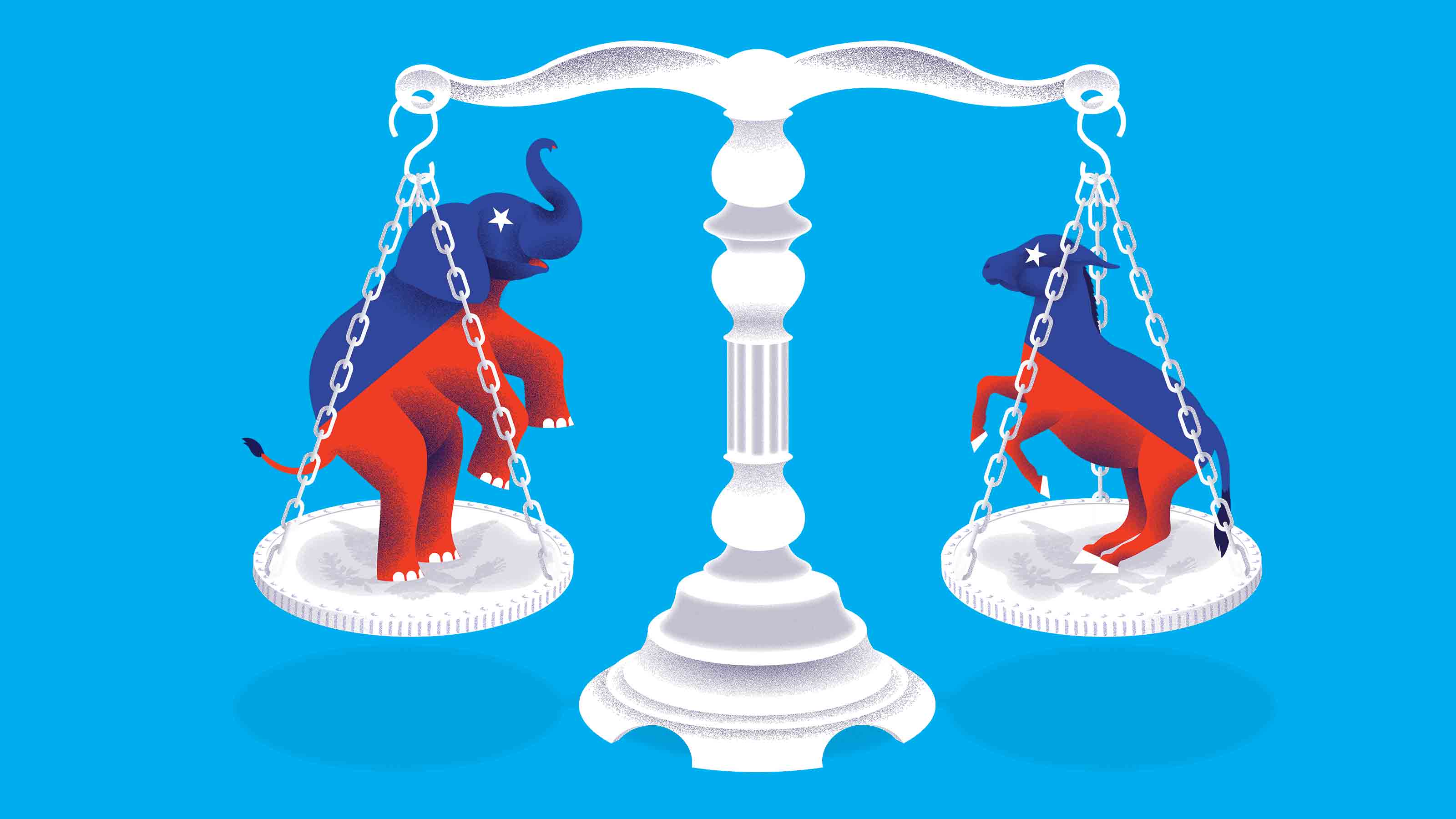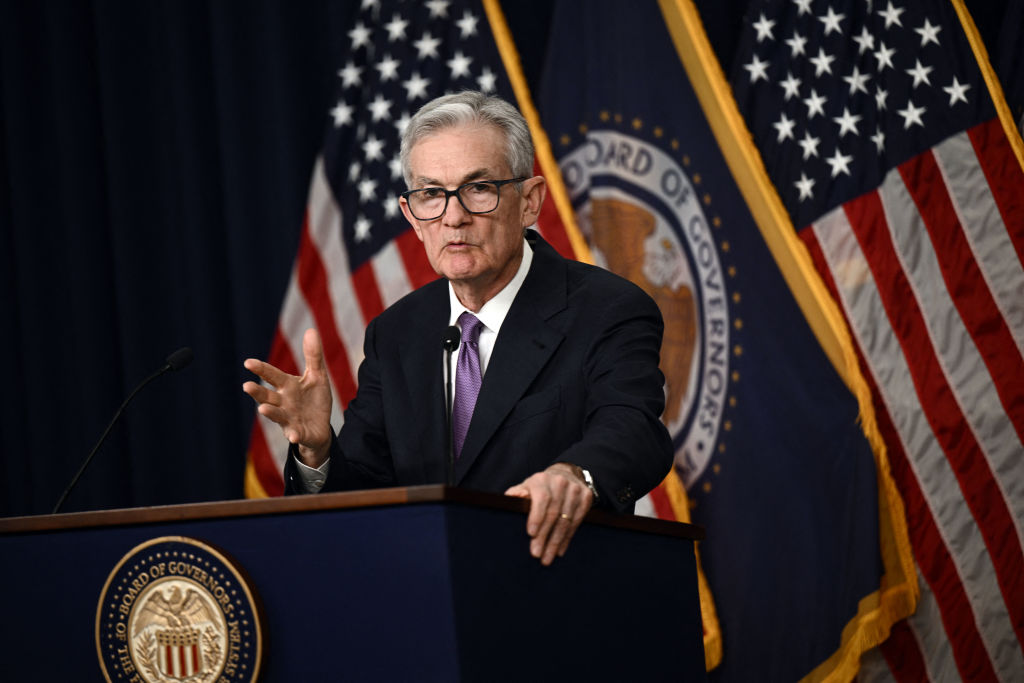The 2020 Election and Your Money
We’ve assessed how the presidential candidates’ stances on financial issues will affect your wallet.

Profit and prosper with the best of Kiplinger's advice on investing, taxes, retirement, personal finance and much more. Delivered daily. Enter your email in the box and click Sign Me Up.
You are now subscribed
Your newsletter sign-up was successful
Want to add more newsletters?

Delivered daily
Kiplinger Today
Profit and prosper with the best of Kiplinger's advice on investing, taxes, retirement, personal finance and much more delivered daily. Smart money moves start here.

Sent five days a week
Kiplinger A Step Ahead
Get practical help to make better financial decisions in your everyday life, from spending to savings on top deals.

Delivered daily
Kiplinger Closing Bell
Get today's biggest financial and investing headlines delivered to your inbox every day the U.S. stock market is open.

Sent twice a week
Kiplinger Adviser Intel
Financial pros across the country share best practices and fresh tactics to preserve and grow your wealth.

Delivered weekly
Kiplinger Tax Tips
Trim your federal and state tax bills with practical tax-planning and tax-cutting strategies.

Sent twice a week
Kiplinger Retirement Tips
Your twice-a-week guide to planning and enjoying a financially secure and richly rewarding retirement

Sent bimonthly.
Kiplinger Adviser Angle
Insights for advisers, wealth managers and other financial professionals.

Sent twice a week
Kiplinger Investing Weekly
Your twice-a-week roundup of promising stocks, funds, companies and industries you should consider, ones you should avoid, and why.

Sent weekly for six weeks
Kiplinger Invest for Retirement
Your step-by-step six-part series on how to invest for retirement, from devising a successful strategy to exactly which investments to choose.
Whether the upcoming presidential election is a battle for the soul of the nation or the way to keep America great is a question we will leave to you to answer. But the election will have important ramifications for your financial well-being, and we’re all over that agenda. How will each of the candidates help steer the economy? What might your tax bill be? Is your portfolio headed for gains or losses? For those questions, the person living at 1600 Pennsylvania Avenue for the next four years matters.
At the start of the year, a sound economy, rock-bottom unemployment rates and a roaring bull market made it Donald Trump’s election to lose. Then came the coronavirus pandemic, exacting a vast and tragic human toll, putting a dramatic end to the longest economic expansion and bull market on record, and robbing tens of millions of Americans of their livelihood.
It remains to be seen whether voters will renew President Trump’s lease on the White House in November, but former Vice President Joe Biden became a more formidable contender over the summer, if you believe the polls and the betting markets. In early July, policy analysts at investment firm Raymond James gave Biden a 55% chance of winning the presidency.
From just $107.88 $24.99 for Kiplinger Personal Finance
Become a smarter, better informed investor. Subscribe from just $107.88 $24.99, plus get up to 4 Special Issues

Sign up for Kiplinger’s Free Newsletters
Profit and prosper with the best of expert advice on investing, taxes, retirement, personal finance and more - straight to your e-mail.
Profit and prosper with the best of expert advice - straight to your e-mail.
But it bears repeating that the circumstances surrounding the 2020 election are unique, and for insights into who will ultimately claim victory, you might be better off asking an epidemiologist than a political consultant. Each of the presidential candidates faces “significant challenges,” according to analysts at Wells Fargo Investment Institute. “Voter perception of how President Trump manages the pandemic and economic reopening is key to his reelection bid.”
What is clear is that the country has rarely been more polarized. “The U.S. presidential election [is] set to take place against the most tumultuous domestic backdrop since 1968,” write analysts at BlackRock Investment Institute in their 2020 Midyear Outlook. “The two parties are as far apart on policy as they have ever been, making the result consequential for markets.”
Taxing matters. Taxes will be front and center. A Biden administration would target the 2017 corporate tax cuts for a partial rollback and float the possibility of higher rates on capital gains and dividends, as well as an expansion of payroll taxes for wealthy Americans. That would nick corporate profits and possibly dampen the animal spirits of investors, especially high-net-worth taxpayers, but would be at least partially offset by aggressive economic stimulus, says Solita Marcelli, chief investment officer, Americas, at UBS Global Wealth Management. A Trump 2.0 administration would be incrementally positive for economic growth and the stock market, Marcelli says, counterbalanced by the risk of a re-escalation of trade wars.
Although the presidential candidates loom large during election season, Congress holds the key to big policy shifts. “A clean sweep, whether red or blue, makes a big difference,” says Marcelli. “In a divided government, enacting tax and spending legislation becomes more difficult. As a result, regulatory and trade policy become the main policy drivers.”
The chances of a blue sweep were rising midsummer, with Raymond James giving Democrats a 50% chance of taking back the Senate and a 95% chance of keeping the House. Republicans are defending 23 seats in the Senate; Democrats, 12. Democrats need to net four seats (or three seats plus the presidency) to flip the Senate. The toss-up Senate races as of July included Arizona, Colorado, Maine and North Carolina.
Expect some heated rhetoric and volatile markets in the run-up to Election Day.
Sandra Block, Lisa Gerstner, Nellie S. Huang and Anne Smith contributed to this story.
Profit and prosper with the best of Kiplinger's advice on investing, taxes, retirement, personal finance and much more. Delivered daily. Enter your email in the box and click Sign Me Up.
-
 How Much It Costs to Host a Super Bowl Party in 2026
How Much It Costs to Host a Super Bowl Party in 2026Hosting a Super Bowl party in 2026 could cost you. Here's a breakdown of food, drink and entertainment costs — plus ways to save.
-
 3 Reasons to Use a 5-Year CD As You Approach Retirement
3 Reasons to Use a 5-Year CD As You Approach RetirementA five-year CD can help you reach other milestones as you approach retirement.
-
 Your Adult Kids Are Doing Fine. Is It Time To Spend Some of Their Inheritance?
Your Adult Kids Are Doing Fine. Is It Time To Spend Some of Their Inheritance?If your kids are successful, do they need an inheritance? Ask yourself these four questions before passing down another dollar.
-
 9 Types of Insurance You Probably Don't Need
9 Types of Insurance You Probably Don't NeedFinancial Planning If you're paying for these types of insurance, you may be wasting your money. Here's what you need to know.
-
 Amazon Resale: Where Amazon Prime Returns Become Your Online Bargains
Amazon Resale: Where Amazon Prime Returns Become Your Online BargainsFeature Amazon Resale products may have some imperfections, but that often leads to wildly discounted prices.
-
 Fed Leaves Rates Unchanged: What the Experts Are Saying
Fed Leaves Rates Unchanged: What the Experts Are SayingFederal Reserve As widely expected, the Federal Open Market Committee took a 'wait-and-see' approach toward borrowing costs.
-
 Fed Sees Fewer Rate Cuts in 2025: What the Experts Are Saying
Fed Sees Fewer Rate Cuts in 2025: What the Experts Are SayingFederal Reserve The Federal Reserve cut interest rates as expected, but the future path of borrowing costs became more opaque.
-
 Fed Cuts Rates Again: What the Experts Are Saying
Fed Cuts Rates Again: What the Experts Are SayingFederal Reserve The central bank continued to ease, but a new administration in Washington clouds the outlook for future policy moves.
-
 Fed Goes Big With First Rate Cut: What the Experts Are Saying
Fed Goes Big With First Rate Cut: What the Experts Are SayingFederal Reserve A slowing labor market prompted the Fed to start with a jumbo-sized reduction to borrowing costs.
-
 Fed Holds Rates Steady, Sets Stage for Easing: What the Experts Are Saying
Fed Holds Rates Steady, Sets Stage for Easing: What the Experts Are SayingFederal Reserve The Federal Reserve left interest rates unchanged but signaled it could pivot to lowering borrowing costs sooner rather than later.
-
 Fed Holds Rates Steady, Sees Just One Cut This Year: What the Experts Are Saying
Fed Holds Rates Steady, Sees Just One Cut This Year: What the Experts Are SayingFederal Reserve The Federal Reserve kept interest rates unchanged and penciled in one quarter-point cut in 2024.